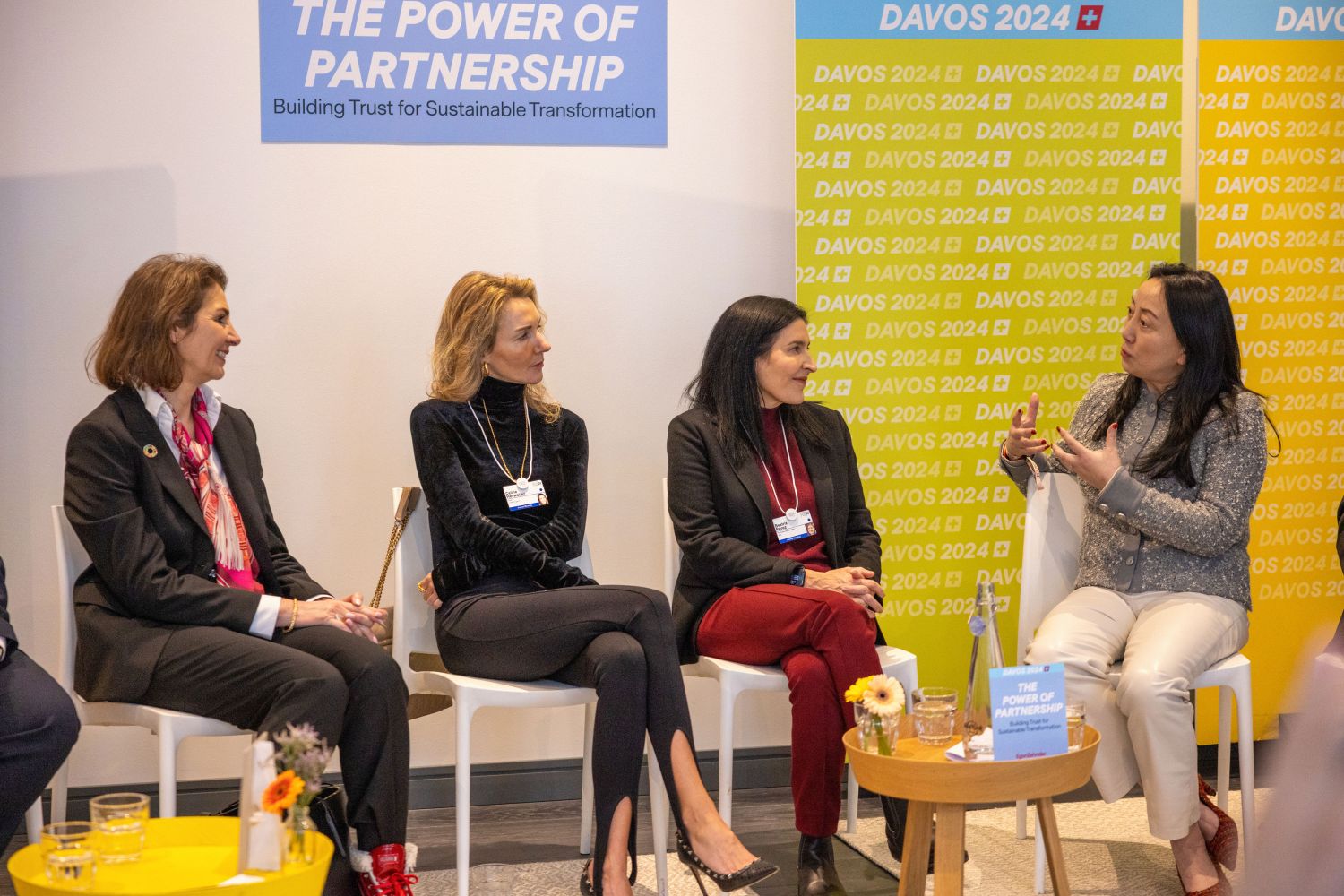Sustainability has risen in importance to be one of the main agenda items boards are now regularly discussing. With this heightened relevance, boards and Chief Sustainability Officers must deepen their relationships and engagement to drive positive change throughout their organizations.
As sustainability gains prominence on board agendas, leaders convened at the World Economic Forum earlier this year to discuss enhancing competencies, highlighting the transformative potential of partnerships and the indispensable role of trust in fostering a sustainable future.
Partnerships in Action
Bea Perez, Chief Communications, Sustainability and Strategic Partnerships Officer of The Coca-Cola Company, Celine Herweijer, Group Chief Sustainability Officer at HSBC, and Helle Bank Jorgensen, CEO of Competent Boards, shared insights on what these partnerships look like in action.
Perez described Coca-Cola’s pursuit of a circular economy, noting that a major challenge is water sourcing. To solve this, Coca-Cola collaborated with several other companies, which required every organization involved to put aside ego, competitiveness and profits to focus on a joint societal issue. Trust played a pivotal role in this partnership, in which lawyers present at each meeting to ensure fairness and independence.
At HSBC, Herweijer emphasized the importance of “active and constant discussions” with the board. These discussions are focused on how to “re-architect and re-wire” to embed sustainability considerations across the financial system. “We need to build trust with stakeholders and that includes explaining clearly the change underway, what’s in our control as we make progress towards our targets, and uncertainties and dependencies”, she explained, noting the need to keep up to date with the evolving real-world trajectory to net zero.
Jorgensen advocated for approaching all issues with "the power of partnership" lens. She noted that educating board directors on environmental issues and fostering communication with leaders as essential steps.
Balancing Sustainability with Growth
One of the challenges sustainability advocates often face is not sacrificing growth for the sake of sustainability or vice versa. This is where a Chief Sustainability Officer plays a key role. “The first job of the CSO is to set out the commercial imperative - the commercial opportunity and the revenues at risk,” Herweijer said. In addition, key performance indicators (KPIs) and commercial KPI architecture were identified as essential tools for measuring and achieving sustainable growth.
The conversation also delved into industry paradoxes, such as the tension between private and public interests, and the important role of policies to channel investment such as tax credits, standards, subsidies, and blended finance. CEOs were urged to lead the charge toward sustainable goals, recognizing the challenges posed by consumer behavior and changing political landscapes, and the gap between words and actions.
Top of Form
As leaders take on the responsibility of driving change, the collective power of partnerships emerges as a formidable force in addressing global challenges. The path to a sustainable future lies in collaborative efforts, trust-building, and a commitment to transformative partnerships across industries.







